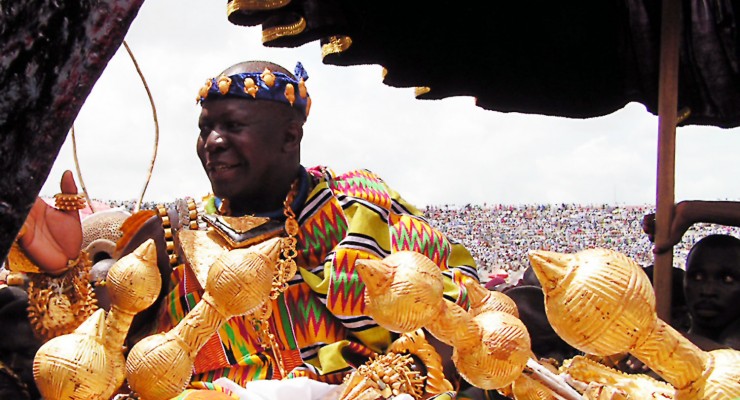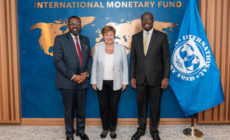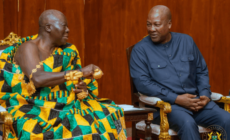He pleaded with Ghanaians to accept some adverse effects from the IMF approach but made it categorically clear to the government that it should not lead to increased tariffs and retrenchment of public sector manpower because that would worsen the already precarious unemployment situation.
The Asantehene stated this in a speech read on his behalf by the Akyempimhene, Oheneba Adusei Poku, at the 10th Ashanti Business Excellence Awards in Kumasi at the weekend.
It was organised by Top Brass Ghana under the auspices of the Manhyia Palace.
Some of the companies honoured include AngloGold Ashanti, E. K. Agyeman Mining Company, Consar Construction Limited, Poku Trading, Miklin Hotel and Melcom Ghana Limited.
The Asantehene urged the government to approach the IMF for technical and financial assistance, and pleaded with Ghanaians to expect and accept some level of adverse effects of the IMF prescription on their standards of living in the short term.
“I wish to caution government to ensure that the prescription ultimately agreed with the IMF does not create undue hardship for the ordinary Ghanaian, such as increased tariffs and retrenchment of public sector manpower, which will worsen the already precarious unemployment situation,” Otumfuo explained.
Hope
Otumfuo Osei Tutu expressed the hope that ultimately the IMF discussion would culminate in micro-economic stability and boost investor confidence in the Ghanaian business environment.
Quoting from recent research conducted by the Association of Ghana Industries (AGI) which indicated that the depreciation of the cedi against the country’s major trading currencies had become a major constraint to business growth, he expressed the hope that the government would consolidate all its recent measures to address the situation.
He explained that he was aware of the strenuous efforts by the government to stem the increasing tide of the steep depreciation of the cedi but said that all such moves had to be consolidated to attain the desired objective in time.
IEA Research
Otumfuo Osei Tutu was unhappy that despite the introduction of several innovative and personal products by various commercial banks in recent times, a survey by the Institute of Economic Affairs (IEA) had shown clearly that agriculture was the least assisted with credit, when it comes to loans to the business community.
He said although the agricultural sector was the mainstay of the Ghanaian economy, it continued to receive diminishing support, but commended the government’s effort at supporting the sector with some new strategies.
He particularly cited the completion of the transformation of the Export Development and Investment Fund into an Export Development and Agricultural Investment Fund which was geared towards making resources available to the agricultural sector.
The Asantehene extended invitation to the managers of the fund to open an office in Kumasi to cater for the middle belt of the country.
Poultry
Touching on the once booming poultry industry which employed a large number of Ghanaian youth, especially in the Ashanti Region, Otumfuo Osei Tutu expressed dismay at the current state of the sector, which has resulted in the country resorting to imports to meet local consumption.
He again lauded the government for the determination to revitalise the industry but stressed the urgent need for it to redouble such moves to halt the millions of dollars used in importing poultry into the country annually.











 (Selorm) |
(Selorm) |  (Nana Kwesi)
(Nana Kwesi)